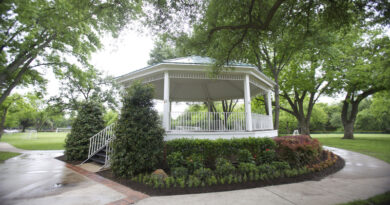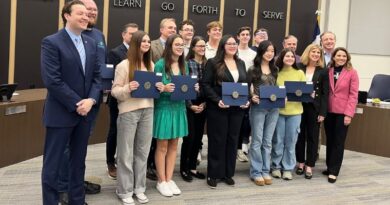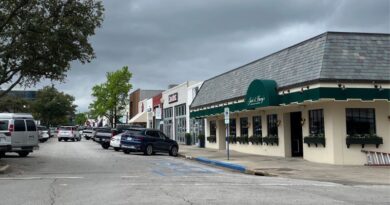Pastors Swap Pulpits to Promote Racial Amity
Jeff Warren grew up in a Christian home in Charlotte, N.C., with great influences, playing soccer in high school, experiencing true changes in season, and being drawn to ministry at an early age.
Yet just as vividly, Warren remembers the disorder and injustice happening just outside his front door. He grew up during the time of desegregation. He recalls being put in the classroom with black students for the first time in elementary school. In junior high, he saw racial-conflict fights in the hallways in between classes. But it was what occurred following a high school basketball game that is still etched in his mind to date.
“I was out there with some others waiting on my mom to pick me up when the bus of the players from the school — an all-black school, really — that played us came back to the gym,” Warren said. “Folks were getting off the bus crying and screaming. Someone had thrown rocks and bricks through the bus windows, hitting players and cheerleaders. I remember that vividly, and I was scared to death thinking this is my school and somebody did this in our neighborhood. That was probably a really big moment for me.”
Warren was taught that skin color doesn’t matter. That principle has stayed with him from then to now, providing a foundation for several meaningful friendships with people of diverse ethnic backgrounds.
With recent events denoting racial disharmony — from the riots in Ferguson, Mo., to the Charleston, S.C. church shootings — those values seem even more important today. He has since used his platform in the community to beg the question: How do we unite and prevent this from happening in our own community?
“A lot of people think there’s no racial problem, but it’s simply because it’s not a part of our lives, especially in the Park Cities,” said Warren, who has served five years as senior pastor at PCBC. “We don’t know it until we start dialogue and have friendships with people who are not like us. The more diverse our experiences are, the more gospel will really flourish.”
So Warren hatched an idea to switch pulpits with his friend Bryan Carter, pastor of Concord Church in southern Oak Cliff. The concept gained momentum at Movement Day Greater Dallas, a multiethnic gathering of believers last summer to discuss the challenges facing the city.
“It was Ferguson that sparked it. We realized, good grief, if we don’t know each other, and our pastors and leaders across the city don’t know each other, then you don’t unite,” Warren said. “You can’t come together with people you don’t know. We realized our friendships had to go deeper.”
That triggered the idea of switching places on Palm Sunday to preach about unity, to show each congregation that though they may not all look alike nor share the same background, they do share the same faith. Warren hopes hundreds of churches will do the same thing next Palm Sunday.
Carter said racial harmony is an ongoing obligation, and the pair has committed to pushing further by bringing together colleagues from throughout Dallas-Fort Worth to spread their message further.
“The DFW area is rich with many races and cultures that make it a great area to live,” said Carter, who’s served as pastor at Concord Church since 2003. “Working to bridge the gap that often exists between races and sometimes cultures, class, or religions will only help to make the DFW area an even greater area to live. The community of faith must take the first of many steps in helping to bridge these gaps. I’m looking forward to the time with each of them and believe in our commitment to make racial harmony a priority for now and the next generation.”
Next up, the two churches are collaborating on a youth swap. The fifth and sixth-graders in the PCBC youth ministry will go to Concord Church on a Sunday and be a part of their worship experience. On a separate Sunday, a youth group from Concord will visit PCBC.
“I’ve got a bunch of adults who have never gone into an African-American community. They don’t know what that’s like,” Warren said. “We’re getting kids exposed to that early on, and I think that will change their perspective. We have racial stories within our history that’s formed our knowledge and perspective. Our kids are going to have that, but it will be a positive one.”
This story originally appeared in the September 2015 issue of Park Cities People.








